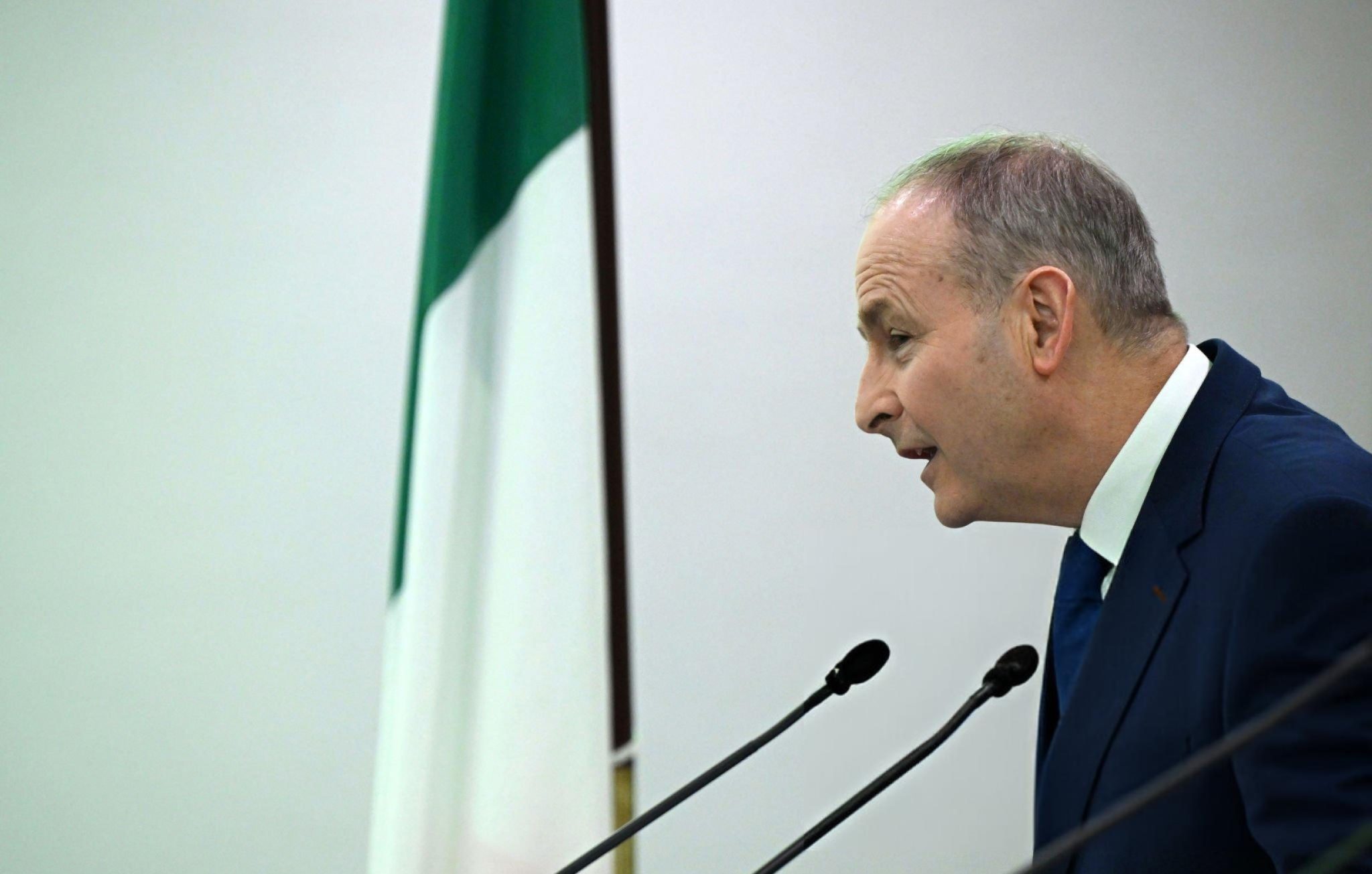Ireland to Intervene in Genocide Case Against Israel at ICJ
Ireland is set to formally intervene in South Africa’s case against Israel at the International Court of Justice (ICJ) later this month, seeking to broaden the global understanding of genocide under international law. The intervention, approved by the Irish Government on Wednesday, reflects Ireland’s commitment to upholding the Genocide Convention and its broader interpretation of the term.
Deputy Premier and Foreign Affairs Minister Micheál Martin announced the decision following a Cabinet meeting, describing it as a significant step towards holding states accountable for actions that harm civilians. “There has been a collective punishment of the Palestinian people through the intent and impact of Israel’s military actions in Gaza, leaving 44,000 dead and millions displaced,” Mr Martin said. “By legally intervening in South Africa’s case, Ireland will ask the ICJ to broaden its interpretation of genocide by a state.”
This move is consistent with Ireland’s earlier approval to intervene in The Gambia’s case against Myanmar, also under the Genocide Convention. Mr Martin expressed concern that a narrow definition of genocide fosters impunity, stating: “Ireland’s view of the convention prioritises the protection of civilian life. As a committed supporter of the convention, the Government will promote this broader interpretation in its intervention.”
Broader Interpretation of Genocide
Ireland’s stance highlights its advocacy for a more inclusive understanding of genocide, which prioritises the safeguarding of civilian populations. This contrasts with the narrower interpretations often adopted, which, critics argue, allow perpetrators of atrocities to escape accountability.
Stephen Bowen, Executive Director of Amnesty Ireland, praised Ireland’s intervention, describing it as a “glimmer of hope.” However, he also called for further action, stating: “The self-imposed powerlessness of states must end. Those like Ireland, who have called for a ceasefire, must create a common platform to end genocide.”
Bowen emphasised the need for an immediate ceasefire, unrestricted humanitarian aid, and an end to the transfer of weapons to Israel. “This is genocide. This must stop,” he declared. “Ireland must leverage its influence fully, acting visibly and firmly. History demands it of us.”
The Case Against Israel
The case brought by South Africa at the ICJ accuses Israel of violating the Genocide Convention through its military operations in Gaza. The conflict has seen widespread displacement of civilians, destruction of infrastructure, and a mounting death toll, prompting international condemnation and calls for accountability.
Ireland’s intervention underscores its broader commitment to human rights and international law. By addressing the actions of states in conflict zones, it seeks to ensure the Genocide Convention is interpreted and applied to protect vulnerable populations.
Mr Martin highlighted the urgency of these interventions, noting that the protection of civilians has been undermined by a culture of impunity. “Ireland’s consistent approach demonstrates our dedication to the Genocide Convention,” he said.
The Role of the ICJ
As the UN’s principal judicial body, the ICJ adjudicates disputes between states and provides advisory opinions on international legal questions. Ireland’s intervention signals its intention to influence how the court defines genocide and evaluates state actions in cases of mass atrocities.
The ICJ’s ruling could have far-reaching implications for international law and the accountability of states accused of committing or enabling genocide. For Ireland, this is an opportunity to advocate for the prioritisation of civilian protection in conflict zones and to challenge narrow interpretations that have hindered justice for victims of mass atrocities.
Global Impact and Ireland’s Position
Ireland’s move has been lauded as an example of principled diplomacy, with human rights organisations urging other states to follow suit. The intervention aligns with Ireland’s broader foreign policy goals, which emphasise human rights, multilateralism, and the rule of law.
As the international community grapples with ongoing conflicts and allegations of genocide, Ireland’s stance highlights the need for collective action to uphold human dignity and protect vulnerable populations. The intervention at the ICJ represents a significant step in this direction, affirming Ireland’s role as a vocal advocate for justice and accountability on the global stage.
Ireland’s decision to engage with both the Israel and Myanmar cases demonstrates its consistency in applying the principles of the Genocide Convention. The ICJ rulings in these cases could redefine global standards for preventing and addressing genocide, with Ireland playing a pivotal role in shaping this discourse.







